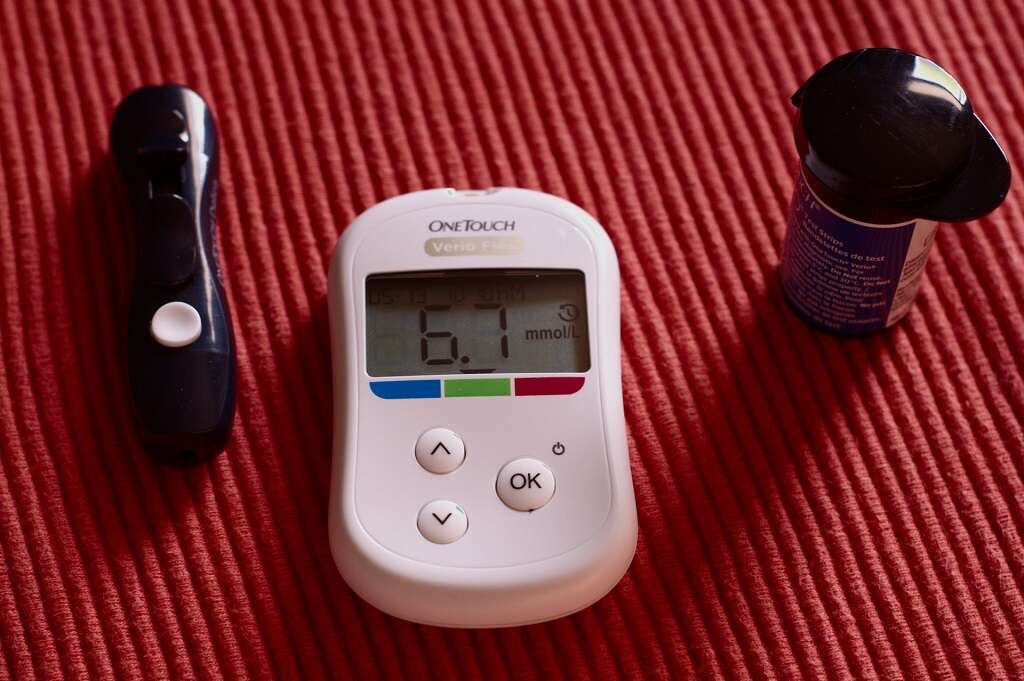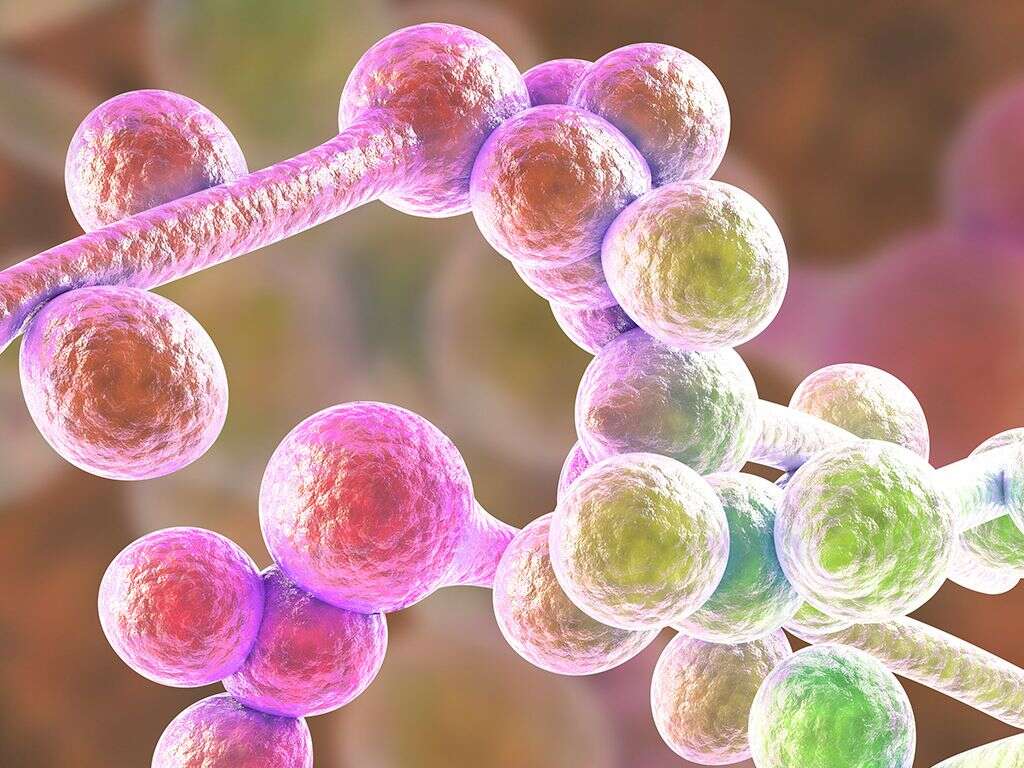10 Yeast Infection Symptoms
 Article Sources
Article Sources
- 1. Parenthood, Planned. 'What Is a Yeast Infection?: Symptoms, Signs and Causes.' Planned Parenthood, www.plannedparenthood.org/learn/health-and-wellness/vaginitis/what-yeast-infection
- 2. Sumners, — Christina. 'UTI or Yeast Infection: What's the Difference?' Vital Record, 14 Nov. 2019, vitalrecord.tamhsc.edu/uti-or-yeast-infection-whats-the-difference/
- 3. 'Vaginal Yeast Infections: Treatment, Causes, Prevention & Symptoms.' Cleveland Clinic, my.clevelandclinic.org/health/diseases/5019-yeast-infections
- 4. 'Vulvitis.' Johns Hopkins Medicine, www.hopkinsmedicine.org/health/conditions-and-diseases/vulvitis
- 5. Ginger Vieira. 'Yeast Infections & Diabetes: What You Need to Know.' Beyond Type 2, 30 Apr. 2021, beyondtype2.org/yeast-infections-diabetes/
- 6. 'Vaginal Candidiasis.' Centers for Disease Control and Prevention, Centers for Disease Control and Prevention, 10 Nov. 2020, www.cdc.gov/fungal/diseases/candidiasis/genital/index.html
- 7. 'Yeast Infection (Vaginal).' Mayo Clinic, Mayo Foundation for Medical Education and Research, 17 Mar. 2021, www.mayoclinic.org/diseases-conditions/yeast-infection/symptoms-causes/syc-20378999
It's normal for a healthy vagina to have a small amount of candida yeast. However, sometimes yeast grows too much and causes a vaginal yeast infection, which is also known as vaginal candidiasis.
While these infections are commonly seen in women, men can get yeast infections, too. Yeast infection symptoms in men are generally different from those seen in vaginal infections.1Parenthood, Planned. ‘What Is a Yeast Infection?: Symptoms, Signs and Causes.’ Planned Parenthood, www.plannedparenthood.org/learn/health-and-wellness/vaginitis/what-yeast-infection Although not a sexually transmitted disease, or STD, vaginal yeast infections can be caused by intercourse. The vagina can react negatively to another person's body chemistry, which may cause an imbalance leading to an overgrowth of yeast.

Itching and Irritation
Itching is a common symptom of a vaginal yeast infection. It can also occur with yeast infections affecting a man's penis or scrotum. Sometimes, itching is the only symptom a person experiences at first. If the condition is left unchecked, other symptoms such as burning may occur later. Some individuals may have burning or swelling from the beginning.
Although itchiness can be uncomfortable and aggravating, it's crucial to refrain from scratching. Scratching the genitals can lead to severe irritation, which may further exacerbate the problem. If a person scratches too much, it can cause rashes to form. In rare instances, these scratches can bleed.

Burning Sensation When Urinating
A burning sensation when urinating is another common yeast infection symptom. Burning can also be caused by a urinary tract infection, or UTI. Sometimes, it can be difficult to tell which is to blame.2Sumners, — Christina. ‘UTI or Yeast Infection: What’s the Difference?’ Vital Record, 14 Nov. 2019, vitalrecord.tamhsc.edu/uti-or-yeast-infection-whats-the-difference/
Bacterial and fungal infections due to candida overgrowth can cause a urinary tract infection, or UTI. UTIs generally don't present with thick, white discharge, however. People may also run a fever with a bacterial UTI, but not with a yeast infection.

Discomfort During Intercourse
Vaginal yeast infections can sometimes cause discomfort during intercourse.3‘Vaginal Yeast Infections: Treatment, Causes, Prevention & Symptoms.’ Cleveland Clinic, my.clevelandclinic.org/health/diseases/5019-yeast-infections The pain is usually due to itching, burning, and swelling. When this is paired with the friction of intercourse, it can make existing symptoms worse.
Other conditions can result in pain or discomfort during intercourse. Uterine fibroids, endometriosis and various sexually transmitted infections may also cause painful intercourse. A woman not producing enough natural lubrication can also be to blame.

Thick Discharge
An overgrowth of yeast in the vagina can produce a thick, white discharge. Some people believe the consistency of yeast infection discharge is similar to cottage cheese. At times, it may also be very thin and watery. Women may notice this discharge on their vulva, when they wipe and on their underwear.
The discharge associated with yeast infections doesn't usually have a smell. If someone presents with a discharge that has an unpleasant odor, another condition may be to blame.

Redness and Swelling
Redness and swelling are common yeast infection symptoms. With severe yeast infections, the swelling may become so bad it makes urinating difficult and painful. Anyone experiencing vaginal swelling that makes peeing difficult should seek immediate medical assistance.
Other types of vaginal infections can also cause swelling. Allergic reactions, hormonal imbalances from douching, scabies, urinary tract infections and pubic lice can cause the vulva to swell. Trauma from rough intercourse or a blow to the area may also be to blame.4‘Vulvitis.’ Johns Hopkins Medicine, www.hopkinsmedicine.org/health/conditions-and-diseases/vulvitis

Sores or Cracks
Sores or cracks in the vaginal area may be symptoms of a severe yeast infection, but they don't generally present in mild cases. Small cracks known as fissures may potentially occur due to the overgrowth itself or as a byproduct of scratching and swelling.
Vaginal itching, redness and swelling that present with sores initially might be a sign of something other than a yeast infection. Some STDs can cause sores along with other symptoms.

Soreness
Women with a yeast infection commonly feel soreness in or around the vagina. Usually, this is due to a combination of other symptoms. In mild cases, an over-the-counter antifungal medication may help. In more serious cases, a prescription medication may be necessary.
Soreness and other symptoms may be managed using various tactics. Wearing loose clothing and 100 percent cotton underwear may provide some relief. Avoiding activities that cause sweating or contact with the vaginal area may also help.

Diabetes
Individuals with diabetes are at an increased risk for yeast infections. Elevated blood sugar levels can lead to an overgrowth of yeast, making yeast infections more common.5Ginger Vieira. ‘Yeast Infections & Diabetes: What You Need to Know.’ Beyond Type 2, 30 Apr. 2021, beyondtype2.org/yeast-infections-diabetes/ Those who have trouble managing their diabetes can have an increased likelihood of developing yeast infections.
Diabetics may get yeast infections in areas other than the vagina. Oral thrush is a type of yeast overgrowth affecting the mouth. Yeast can also grow on the skin in the armpits, beneath the breasts or in stomach folds.

Pregnant or on Birth Control
Pregnancy causes fluctuations in a woman's natural hormones. Birth control has the potential to do the same thing. When there's a hormonal imbalance, it can cause a vaginal yeast infection to occur.
Women who are pregnant or using birth control are at an increased risk of yeast infections.6‘Vaginal Candidiasis.’ Centers for Disease Control and Prevention, Centers for Disease Control and Prevention, 10 Nov. 2020, www.cdc.gov/fungal/diseases/candidiasis/genital/index.html If a specific birth control is causing repeat infections, an individual may want to speak with their doctor about trying a different one.

Weakened Immune System
People with a weakened immune system are at an increased risk of yeast infections and other infections or illnesses. Immune systems may be weakened due to preexisting conditions and certain types of medications.7‘Yeast Infection (Vaginal).’ Mayo Clinic, Mayo Foundation for Medical Education and Research, 17 Mar. 2021, www.mayoclinic.org/diseases-conditions/yeast-infection/symptoms-causes/syc-20378999
Preexisting conditions that may cause an immune system deficiency include cancer, HIV and autoimmune disorders. Medications that may suppress the immune system include chemotherapy, steroids and immunosuppressant drugs. This isn't an all-inclusive list, and other medical issues may cause the immune system to work less efficiently.









